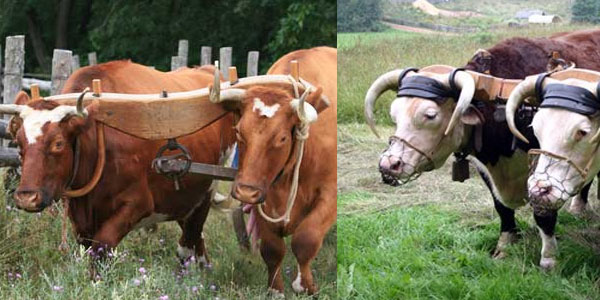Deuteronomy 25:1-10 Click here for Bible Verses

Hi GAMErs!
Today’s passage is Deuteronomy 25:1-10. Let’s go!
Deuteronomy 25:1-3 (NIV)
1 When men have a dispute, they are to take it to court and the judges will decide the case, acquitting the innocent and condemning the guilty.
2 If the guilty man deserves to be beaten, the judge shall make him lie down and have him flogged in his presence with the number of lashes his crime deserves,
3 but he must not give him more than forty lashes. If he is flogged more than that, your brother will be degraded in your eyes.
On verses 1-3: Here we see God’s heart for justice when people are charged with crimes. God wants to make sure that:
– the innocent are acquitted (v1)
– the guilty are convicted (v1)
– the punishment fits the crime (v2) and
– the punishment is appropriate and not degrading to the person being punished (v3).
Parents, teachers and leaders of all kinds, whenever you must discipline those you lead, keep these same principles about justice in mind. Choose a punishment that fits the crime and that does not make the person being punished feel worthless (“degraded” – v3).
By the way, notice that the maximum punishment here was being flogged with 40 lashes (v3). Jesus was flogged not because He Himself had done anything wrong; rather He was punished for our sin. The apostle Paul also was punished by flogging. In Paul’s case, he was given 39 lashes on five different occasions (see 2 Corinthians 11:24). No one ever said following Jesus was easy.
Deuteronomy 25:4 (NIV)
4 Do not muzzle an ox while it is treading out the grain.
On verse 4: In Moses’ time, some farmers would put a muzzle over an ox while it was treading grain. This was to prevent the ox from opening its mouth and eating the grain it was treading. Moses saw this as an unnecessary and unhelpful limitation. He told the Israelites not to muzzle the ox. It could be because Moses thought that it was too cruel to muzzle the ox and that the ox would be more effective if the ox was free to eat some of the grain as it was treading on it.
How can we apply this verse? Twice in the New Testament in 1 Corinthians 9:9 and 1 Timothy 5:18, Paul quotes this verse to say that a preacher of the gospel should receive adequate financial compensation for their work. More generally, this verse is about showing compassion and not making things unnecessarily difficult for those who do difficult work. So if someone is working for you, try to remove any unnecessary obstacles that keep that person from doing their work effectively.
Deuteronomy 25:5-10 (NIV)
5 If brothers are living together and one of them dies without a son, his widow must not marry outside the family. Her husband’s brother shall take her and marry her and fulfill the duty of a brother-in-law to her.
6 The first son she bears shall carry on the name of the dead brother so that his name will not be blotted out from Israel.
7 However, if a man does not want to marry his brother’s wife, she shall go to the elders at the town gate and say, “My husband’s brother refuses to carry on his brother’s name in Israel. He will not fulfill the duty of a brother-in-law to me.”
8 Then the elders of his town shall summon him and talk to him. If he persists in saying, “I do not want to marry her,”
9 his brother’s widow shall go up to him in the presence of the elders, take off one of his sandals, spit in his face and say, “This is what is done to the man who will not build up his brother’s family line.”
10 That man’s line shall be known in Israel as The Family of the Unsandaled.
On verses 5-10: If a married man died without a son, his nearest male relative (usually a brother) was expected to act as the widow’s “kinsman redeemer”. That meant that he would marry the widow (v5) and if he and the widow bore a son together, they were to name that son after the dead first husband. In this way, the “kinsman redeemer” could help continue the dead first husband’s family line (v6).
If the nearest male relative refused to act as a kinsman redeemer, the consequences were serious. He would be subject to a public ceremony where the widow would remove one of his sandals, spit in his face and rebuke him for his failure to be her kinsman redeemer (v7-10), all in the presence of the town elders. Not just that, but his family would from then on be known as “The Family of the Unsandaled” (v10).
We see this played out in the book of Ruth. Ruth loses her husband, and when her dead husband’s nearest male relative refuses to be Ruth’s kinsman redeemer, he gives his sandal to a more distant male relative called Boaz. Boaz then steps in as Ruth’s kinsman redeemer and takes Ruth as his wife.
Just as Boaz was a kinsman redeemer to Ruth, Jesus is a kinsman redeemer to us. When we had lost all hope, Jesus stepped into our lives, called us His bride, redeemed us, promised to take care of us and gave us a new family to belong to.
Heavenly Father, thank You for showing us in Your Word today that You are a God full of justice (v1-3) and compassion (v4-10). Jesus, thank You for being our kinsman redeemer, for calling us Your bride and giving us Your family to belong to. In Jesus’ name, AMEN!

